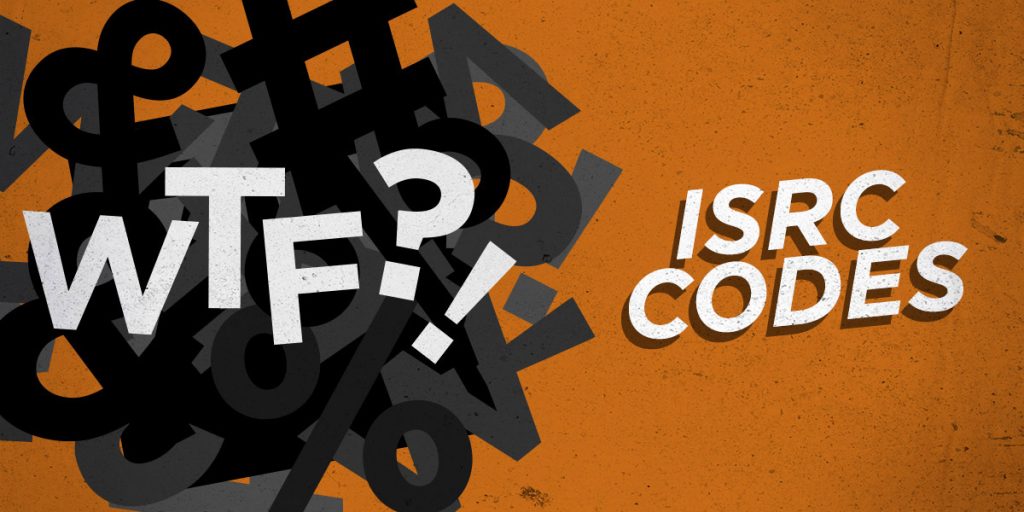Copycats media
Blog
We like to talk, like a lot. Sometimes we write about things that are important to our customers. And sometimes, well we just write things because we don’t know what else to do with ourselves.
What is an ISRC?

Hey blog aficionados- have you ever thought about what it takes to protect your music? Whether you’re a new artist or are a veteran in the industry, the logistical aspects in making sure your music is protected can be overwhelming, complicated, and annoying to deal with when we’d rather be focusing on making our own music.
So what are your options for protecting your music? What are the best ways for you to make sure you’re protecting your rights?
The ISRC, or the International Standard Recording Code, is a permanent international identification system for music, sound and video recordings. It’s considered the first step in managing recordings and maintaining ownership over artistic property, and it’s one of the most reliable ways for music and other recordings to be protected under your ownership!
Since only one ISRC can be issued to a track and can never represent more than one recording, each ISRC is not only unique, but serves as a form of a “digital fingerprint” and provides the means to provide royalty payment when encoded correctly. With such a heavy focus on digital commerce, the ISRC has become more important than ever before.
Benefits
Royalties
One of the largest benefits of the ISRC is the ability for artists to ensure that they can collect royalties for the content they create, especially in the digital age. Each ISRC remains fixed, unique and permanent across different services, different licensing deals and across countries. So it’s not just a permanent identification system, it’s unique and reliable. Once an ISRC is assigned, it remains the same for life.
Cost Effective
For any artist, keeping things affordable is important. Obtaining an ISRC is not only vital to protecting your intellectual property, but it’s extremely cost effective. No additional equipment or technology to invest in is required- making it affordable to protect each of your recordings.
Artist/Consumer Friendly
ISRCs can be assigned by individual artists, recording companies, or an additional third party known as ISRC managers. Once an ISRC is assigned, it remains the same for life- even if the rights to a recording are sold. A rights owner may not change the ISRC under any circumstances.
When Should I Get An ISRC?
An ISRC is assigned to a recording before it’s released, however if a recording is released without one, you can assign one after the fact. However, it should be assigned before it’s re-released.
One thing to keep in mind is that each distinct recording should have its own ISRC- if a recording appears different in any way it should have its own unique ISRC. Here are a few examples:
Different versions of a recording (differences in playing time, language, etc)
Remixes/edits
Creating new surround mix from recorded stems
The general rule is that if any changes are made to the original recording involving artistic or creative input, a new ISRC should be assigned to the resulting version.
What can ISRC be assigned to?
When we heard the word “recording,” we usually just think of music. However ISRCs can be assigned to any unique content that exists on a recording format. This includes:
Recorded music
Podcasts
Videos
Radio interviews
Promotional material
Hidden tracks
Audio books
Different ISRCs can also be assigned to different parts of a recording, especially if different parts are separately exploited.This means not just your music can be protected, but so can your music videos and anything else you create!
How to Obtain an ISRC
An ISRC can be obtained in a variety of ways, the two most common involve obtaining one as the recording owner or through an ISRC Manager. Here is the breakdown:
Apply for a Registrant Code
Recording rights owners based in the United States can apply for a Registrant Code through the US ISRC Agency. The Registrant Code allows for a label, recording company or individual artist to assign an ISRC to all past and future recordings. Your code is yours for life- and allows up to 100,000 ISRCs annually.
Apply Through an ISRC Manager
ISRC Managers have been allocated by the United States ISRC Agency to assign codes on behalf of their clients or customers, or those who do not wish to manage their own ISRC codes.
No matter how your ISRC is obtained, there is no difference between an ISRC issued by a manager or issued by using your own registrant code, and you will still be able to use them for as long as the recording exists.
Whew! That’s a lot to take in- if you’re looking for additional help or information regarding ISRCs or protecting your intellectual property, Copycats Media can help you out!
